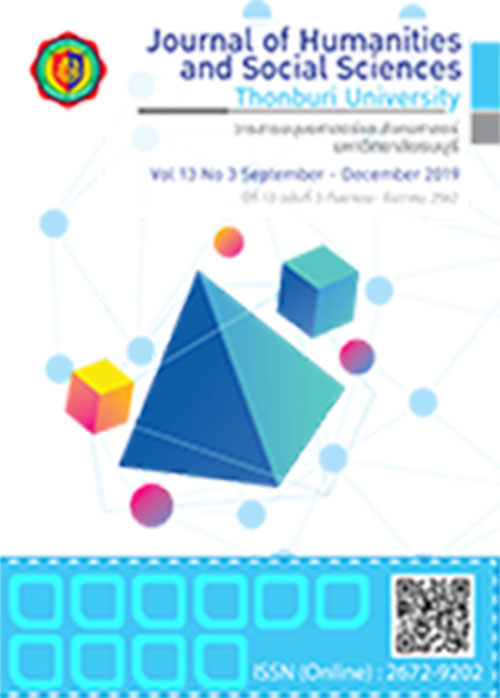TRANSNATIONAL CRIME IN THAILAND: THE CASE OF THE AFRICAN DRUG SYNDICATES
Main Article Content
Abstract
Narcotics problem is one of the most serious problems in Thailand which every government put enormous budget to solve the issue. Numbers of policies has been adopted in order to cope with drugs situation in Thailand. However, the problem still exists and cause massive problems to Thai society such as health issue, economics problem and other crimes. Unfortunately, narcotics problem getting even more complicated than before due to the social change which resulted from “globalization”. Globalization is the process of relationship between countries and people in the world with combining markets, production and resource all over the world by utilizing through the international trading system, moving labor and international fund. Globalization leads to the reduction of transportation cost, advance telecommunication system and shift in labor; which shapes local crime into transnational crime. African drug syndicates usually use advance telecommunication technology to commit transnational drug trafficking to avoid detection of the authorities, which regrettably works. African drug syndicates have become greater problem to law enforcement around the world, as the rising number of cases, the number of members around the globe and the sophisticated operational patterns. Thai authorities also found difficulties in suppression African drug syndicates because of language barrier and methods they use in smuggling drugs. This paper discusses why the African drug syndicate has chosen to operate in Thailand and what this syndicate’s operational patterns are so that proper policy can be ascertained to deal with these syndicates in Thailand.
Article Details
References
Cornish, D.; & Clarke, R. V. (2003). Opportunities, precipitators and criminal decisions: A reply to Wortley’s critique of situational crime prevention. Crime Prevention Studies, 16: 41-96.
Croucher, Sheila L, (2004). Globalization and Belonging: The Politics of Identity in a Changing World. Rowman & Littlefield.
Kleemans, E. R. (2014). Theoretical perspectives on organized crime. In L. Paoli (Ed.), Oxford Handbook of Organized Crime (pp. 32-52). Oxford: Oxford University press. DOI: 10.1093/oxfordhb/9780199730445.013.005
Laosunthorn, Wut (1993). Research report on Amphetamine Trade Crime. Bangkok: Office of Narcotics Control Board.
Narcotics Suppression Bureau (2017). African Drug Syndicate Investigation Report 2017. Narcotics Suppression Division 1.
Patton, M. (1990). Qualitative evaluation and research methods. (pp. 169-186). Beverly Hills, CA: Sage.
Piriyangsun, Sangsit; et al. (2015). Research Project Narcotics Dissemination: Women's Prisoners' Freedom. Rajabhat Chandrakasem University (Center for Academic Governance Services) presented to the Office of the Permanent Secretary for Justice. March 2015.
United Nations office for Drug Control and Crime Prevention (2012). Annual Report.
Wongupparaj, Rangsirat.; Wongupparaj, Peera; & Yamchuti Urairat (2015) The Guideline for Developing a Project on Drug Prevention and Treatment in Youth by Social and Emotional Learning (SEL) Activities. Journal of Thonburi University. 9(19): 76-93.

